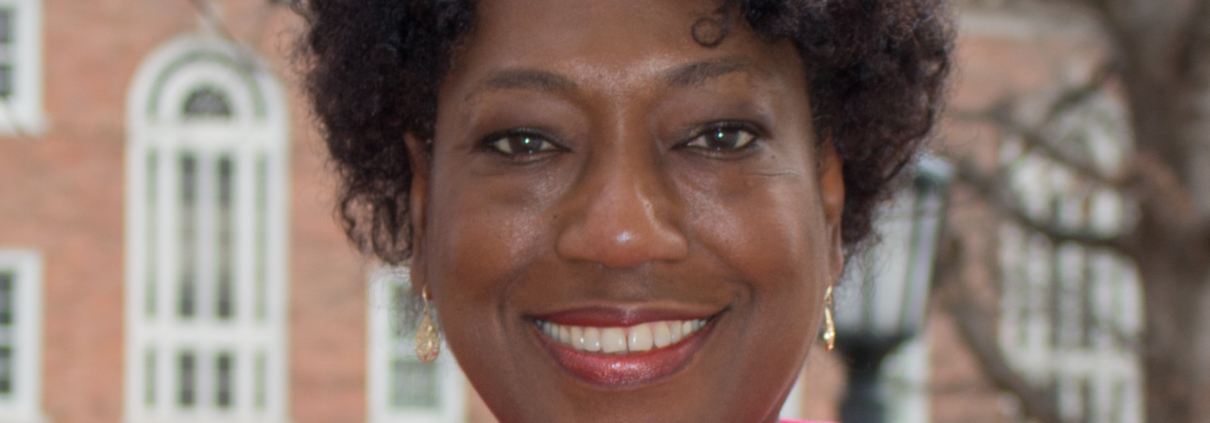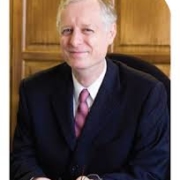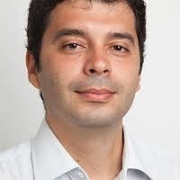Today we look inside an example of destabilizing knowledge hierarchies inside an American university. With me is Patricia Parker. Patricia helped set up the Graduate Certificate in Participatory Research at the University of North Carolina at Chapel Hill. The graduate certificate reveals the paradoxes of challenging dominant forms of knowledge inside one of the very sites, the university, responsible for reproducing colonial knowledge structures.
Patrcia Parker is chair of the Department of Communication at the University of North Carolina where she is also an associate professor of critical organizational communication studies and director of the Graduate Certificate in Participatory Research. She is currently finishing a book entitled, Living Ella Baker’s Legacy, which documents a multiyear participatory research study with African American girls in under-resourced communities leading social justice activist campaigns.
She will speak at the CIES Symposium later this month.
Citation: Parker, Patricia, interview with Will Brehm, FreshEd, 90, podcast audio, October 9, 2017. https://www.freshedpodcast.com/parker/
Transcript, Translation, Resources:
Will Brehm 2:01
Patricia Parker, welcome to FreshEd.
Patricia Parker 2:04
Thank you so much for having me.
Will Brehm 2:06
So, what exactly is participatory research?
Patricia Parker 2:09
Well, there are different ways of thinking about and defining participatory research in the literature. But from the perspective of the Graduate Certificate in Participatory Research at UNC Chapel Hill, we understand participatory research as research that’s carried out from the inception of what the research is about, the research questions, the implementation of the research, or the dissemination of the research products. We understand that to be done in partnership with communities. And that way of thinking about research can be contrasted with more traditional ways of thinking about research, for example, on communities, or even distinguished from research and communities. And those distinctions were laid out in a wonderful research article by Wallerstein if your listeners want to follow up on some of the resources or research with communities as opposed to on or in communities.
Will Brehm 3:25
So, what is the Graduate Certificate in Participatory Research at the University of North Carolina?
Patricia Parker 3:32
The Graduate Certificate in Participatory Research at UNC is a certificate that is intended for graduate students who are seeking training in participatory research methods. It is a fairly new certificate that was founded by a collective of faculty, students, and administrators that was meant to respond to a particular need for that.
Will Brehm 4:06
And what was the need?
Patricia Parker 4:07
Well, the need was to create, really, a learning community for graduate students who, for whatever reason – and I would like to talk more about those reasons- find themselves questioning whether or not using participatory methodologies in particular, in terms of way this certificate is structured, find themselves questioning whether or not using those methods are consistent with disciplinary standards or perspectives. And so, we wanted to provide that space where students could ask questions about doing research in equitable partnership with people in communities. I mean, that’s really at the foundation of what this is about. That, oftentimes in the academy, there are different ways of thinking about how knowledge is produced. And what counts as knowledge, who counts as researchers, in terms of producing knowledge. And so those of us who are in research universities, who are in the academy in general, who are doing research that we believe is transforming these notions, quite frankly, that come from sort of a colonizing thinking of the academy as a colonizing space, transforming these notions that people in communities do not have expertise that can shape the way that knowledge is being produced. And so, the certificate was intended for graduate students who intended to do that kind of research and to have the support to do it.
Will Brehm 5:54
So why did all of these students and faculty think the academy is a colonizing space?
Patricia Parker 6:01
Well, we’re not the first to think that. I mean, there’s a long tradition, in the histories, of the universities of the academy, as perhaps, in the words of Carole Boyce Davies, who’s written quite a bit about this, it might be considered the most colonized space. And by that, it’s meant that it is a site for the production and reproduction of particular discourses that keep colonial structures in place. And these colonial structures are meant to maintain what has been referred to as Euro American hegemonies at the level of thinking and also in the larger world. So, this translates into the very idea of who belongs in the academy, who has access to particular ways of shaping thought. And when I speak about the discourses that have produced and maintained these structures, they are manifest in terms of looking at the diversity or the lack of that among faculty across the United States. And I’m speaking in that context, but it can apply in other contexts, that the faculty of color, for example, coming from backgrounds in the US context, in terms of African American, Latinx, Native American, different backgrounds of histories that have basically been marginalized in the academy and that’s manifest just in terms of the embodiment of those experiences in the academy.
Will Brehm 7:57
It’s amazing to think that this certificate program that you helped establish, that was trying to counter some of the colonizing spaces in the academy, was actually taken up by the academy. Was it difficult to get this program actually up and running and agreed to by all of the different people in UNC that might not have realized the value of this sort of program?
Patricia Parker 8:28
Well, I think that’s one of the paradoxes of the academy. While the academy can be this site of colonizing discourses that are maintaining these structures, it also has been this site for transformation and for transforming thinking. And so, I think that was the case in terms of the founding of this certificate. Dorothy Holland, who was a professor in the Department of Anthropology, and Geni Eng, who is a professor in the School of Public Health, so two different entities on campus. The College of Arts and Sciences, which is sort of the heart of the university campus. And then the professional schools – in this case, the Gillings School of Public Health. Two professors who had themselves been engaged with students who want to do this kind of work, and then they encountered other faculty on campus and students who were starting to say, “Hey, we’re trying to do this work, and we have some support in this department, maybe less support in another department.” And so, through their insight from that experience, they convened a seminar that became a … you know, this is the way that knowledge is produced in the academy, right? That you convene intellectual spaces for this deep engagement with these questions. And I was a part of that original seminar. A couple of my other colleagues and several from across campus who were involved in that conversation. And so, I’d say that that was the spark that started to … well, mixing my metaphors here, but planted the seed for creating this conversation on campus. The other, I think really important contextual element that I can mention here is that this was in the early 2000s, so this was also a time when there was an important conversation happening across university campuses about engagement. The Boyer report had influenced a lot of that conversation. For people who don’t know, Ernest Boyer, the former president of the Carnegie Foundation, had written an important piece that talked about universities having a responsibility really right, many that were situated in high areas of poverty, and many other socially situated challenges, that the university has a responsibility to engage with the pressing issues and problems of our contemporary society. And so, our university had been a part of that; we joined a consortium of other universities that formed the Campus Compact, that created this opportunity for an intentional commitment to that kind of effort to engage with communities. And that meant creating the infrastructure that this was a part of the Campus Compact, creating the infrastructure that would lead to this change. And so, building on that, Professor Geni Eng, and Professor Dorothy Holland built on that momentum. There was one other element I want to mention, and that is the School of Public Health, which had really pioneered a great deal of knowledge with regard to community-based participatory research. And so, we drew on all of those traditions that were already the seeds of this work in the university and brought that together to start this conversation. And so, from that seminar, we started the process of creating a certificate, and we formed an advisory board, there were community members who are involved in this. That was very important part of the process that we want it to model the very process and practices, which is to say, research and practice, and reflection and action. As we developed this, we wanted to model that in the development and so community members were involved in that as that process as well. And so, the certificate was approved in 2013. We’re going into the fourth year of the certificate.
Will Brehm 13:33
So, if I were a student today, what would this program look like? What would I be doing? What classes would I be taking? What would the experience be like?
Patricia Parker 13:42
Well, that’s a great question. We like to say that this is not the traditional certificate. Usually, certificates developed out of some sort of disciplinary or interdisciplinary need, and you gather some courses and students take them and they get sort of specific knowledge and training in a particular area. So, this certificate provides that, but it is also so much more. So, there are a few elements that I want to talk about. And this is one of the things that I’ll be talking about at the conference, the symposium. So, one of the things that this symposium asked us to think about is, “How do we intend to interrogate the legitimatization of knowledge and scholarship funding and evidence-based practices in comparative and international education?” And so, one of the central questions that the panel that I’m participating on, that were asked to engage with is, “What ways can research and practice destabilize and transform knowledge hierarchies?” And so now I mentioned that because one of the main requirements of the certificate is a core course that is called Decolonizing Methodologies. And the main intent of that course is to do just what is called for in our panel, in terms of thinking about destabilizing those discourses that have maintained particular structure within the academy in terms of how knowledge is produced in which knowledge is deemed legitimate. So, the students who are completing the requirements for the Graduate Certificate in Participatory Research at UNC Chapel Hill are required to take that Decolonizing Methodologies course. They are also required to take an introductory course, which is a one-hour course that introduces them to the certificate. Also we have a number of speakers, whether they’re graduate students who are doing participatory research, or faculty members or community experts, so that they get a feel that this is doable – that there are graduate students who are doing participatory research and getting their PhDs and going on to have careers. So those are the two required courses. And then there are elective courses that the students are required to take. And these courses would provide additional exposure to participatory methods and they can be across disciplines. And part of my role as director of the certificate is to work with our board – and our board members come from across the university from several disciplines who are interested in this certificate and have courses that fit in – to manage the range of courses that students have to choose from. So, there are a number of elective courses. And then another requirement is that they complete a practicum and a supervised hands-on experience with participatory research. And again, this is something that can be with their current advisor. Oftentimes, it’s not. I think that’s one of the needs that we were addressing is that while there may be departments that support participatory research methodologies, and working in equitable partnership with communities, there may not be people with expertise in that particular department at that time. And so, we work with students to find research supervisors to work with them. And then another requirement is that the students participate in at least two workshops on some facet of participatory research. And we have several centers on campus: the Carolina Center for Public Service, the Center for Health Promotion and Disease Prevention, the Stone Center for Black History and Culture. So, several opportunities, and also in departments. Through my research, I have a nonprofit organization, the Ella Baker Women’s Center, that provides opportunities for students to get workshops if they’re interested in the kind of practice that we are doing. So those are the main requirements, and I mentioned that this is a bit different from other certificates because we have the opportunity for students to get seed grants. We recognize that if you’re doing research for your dissertation that involves working closely with people in communities as community experts, sometimes you need time to cultivate those relationships. And so, we offer seed grants like for summer research so that students can have an opportunity to do that kind of cultivation. Also, the community codirector, Melvin Jackson, who runs our Community Expert Initiative, provides opportunities for students to really start to think about, “What does it mean to engage with people in communities as experts and producers of knowledge alongside them in the academy?” So that’s an overview of the requirements, but also, I believe I’ve given you an idea about how we are a bit different in terms of traditionally how we think about certificates.
Will Brehm 19:48
Yes, absolutely. So, since 2013, have you seen anything to suggest that the intent of destabilizing these knowledge hierarchies in the academy has actually been successful?
Patricia Parker 20:00
Well, I would hesitate to use the term “successful”, because we don’t have a teleological aim here. It really is this process of creating spaces where this kind of work is possible. And then it’s almost like we put it out there and then it starts to transform on its own. And so if I were to talk about success, I would talk only to the extent of creating more and more spaces where people are having the opportunity to offer and take workshops, graduate students are engaging with, we have increased opportunity for them to connect with a cadre of faculty across campus, who are not only available to them in terms of as role models, but also to work directly with them. We create those opportunities through the seed grant initiatives, through coming to our classes, just exposing them to people who are doing the kind of participatory research that the certificate is advancing, and that is to say, recognizing that research can be done in equitable partnership with people in communities. So, it’s a kind of a faith, in terms of trusting the process of transformation. And I believe it’s related to an earlier question you asked: In the very academy that you’re claiming is colonizing, how would you expect, what kind of resistance? And I would dare to say that the resistance, if there is resistance, is just the unknown, the untested. And believe me, I know how that can cause pause to a graduate student who’s here with limited amount of funding, a limited amount of time. And they’re here on the one hand are tried and true methodologies that people who are in the power structure are saying, “Do this, and trust, and just go.” And then here is this opportunity. Oftentimes – this is a scenario that I’m creating here, that I’m recounting here, that is coming from people who are coming from marginalized populations, Native American backgrounds, or histories, or African American or Latinx. And these are from their own experiences. They have come to the academy with questions. The indigenous scholar, Linda Tuhiwai Smith, has written about this in her book, Decolonizing Methodologies, that often for people come into the academy with these indigenous histories, there are questions and there are perhaps even expectations from our communities that we emerged from. For me as an African American woman born in the South working in a university that’s entrenched in histories that are infused with a racist past, these are questions that are at the top of mind for me in terms of, “What does it mean to create these anti-racist structures and spaces, and to confront those anti-racist claims, and to create new knowledge that advances social justice and more equitable spaces and a more equitable and just world?”
Will Brehm 23:50
And this certificate program allows you and other students to kind of wade through that history and complexity that you’re talking about but having this unknown future because you don’t know what will be produced through that process.
Patricia Parker 24:06
Yes, that’s exactly right. Providing that opportunity to ask the questions that are emerging from their experiences and from the histories, and not being told that they’re not legitimate questions. Not being told that these are questions that don’t belong in the academy. That’s what the certificate does. It creates a space that legitimizes the experiences of people who are coming from traditions that are steeped in those histories.
Will Brehm 24:42
And I would imagine that the bureaucracies inside the university … it’s very hard for bureaucracies to also embrace the unknown, right? There’s lots of structures in place that need to know exactly the outcome of this particular process or procedure. And so, I would imagine that this embracing the unknown can be really challenging for the bureaucracies that exist inside UNC or any institution for that matter.
Patricia Parker 25:08
Yes, that’s correct. And one of the ways that this has been manifest in the certificate yes, relates to embracing the unknown in terms of production of knowledge, but more fundamentally, it relates to, “What does it look like in terms of providing funding for students in terms of getting seed grants to work with communities?” So, in terms of just funding a certificate, certificates usually are not funded. You just identify the courses that are in a curriculum that need to be taught. So just searching for funding – and we’ve been very fortunate that we’ve gotten funding from the School of Public Health, we also receive generous funding from the College of Arts and Sciences, where the bulk of the students I believe are coming. So that’s one of the bureaucratic structures that we’ve had to contend with in terms of just thinking about what gets funded and so forth. The other aspects of that come into play when we start to think about getting IRB approval. That’s sort of at the baseline, the Institutional Review Boards that give the green light for research. But again, I think we were fortunate because of the groundwork that the School of Public Health had done, because they had this long tradition on our campus of establishing community-based research. And so that was one of the institutional structures, thankfully, that we did not have to contend with; that groundwork was laid. So, our Institutional Review Boards take into account the kind of applications that our students will bring. The other thing that has come up in terms of structure is the fact that this is a very interdisciplinary certificate. And it happens to be one of the values on this campus right now, in the College of Arts and Sciences in particular, to value interdisciplinary research, teaching, and service. And the reason for that value is that problems are often interdisciplinary. And so, a lot of the university and the College of Arts and Sciences administrators have really placed a value on interdisciplinary initiatives. However, at the department level, it becomes tricky because one of the things that we are advancing is that our core course, Decolonizing Methodologies, doesn’t belong to any one department; it’s a course that can be taught in any department and we’re adamant that it’s called Decolonizing Methodologies no matter who the co-teachers are – this class is taught by two instructors from different disciplines, it’s part of the structure of the course. And we’ve had the hardest time just trying to … there is no entity. In other words, there is no structure on campus that helps us to make that easy. Let me just put it that way. So that’s one of the things; the university really has to be retrofitted for the kinds of initiatives and the ways that we’re teaching the course and administrating the certificate.
Will Brehm 28:54
Well, it’s just such a fascinating look inside a very clear example of how destabilizing these knowledge hierarchies in the academy is working and is progressing, and the challenges that it faces. And it’s so wonderful to see that the program has maybe been institutionalized within UNC or is actually being valued by faculty and students. And so, it’s just such a great effort and I commend you for the work that you’ve done with your other faculty and other students and community members. So, Patricia Parker, thank you so much for joining FreshEd. It really was wonderful to learn and speak today.
Patricia Parker 29:40
Well thank you so much for having me.
Decolonizing Graduate School Knowledge at UNC










